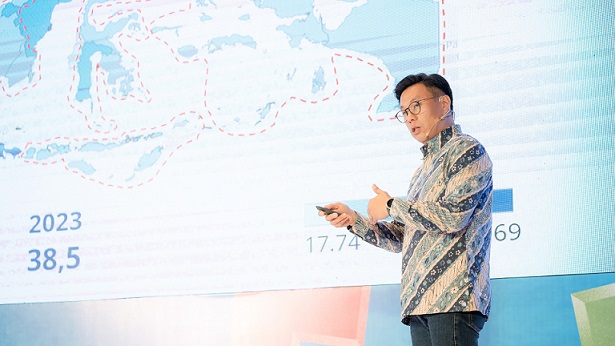JAKARTA, May 15, 2024 — Over the past few years, Indonesia’s digital sector has been steadily growing, with the government and stakeholders proactively promoting digital literacy and the digital economy. However, harnessing this potential requires preparation, as Indonesia faces challenges in ensuring digital readiness across its diverse provinces. Mapping digital competitiveness is essential to understand the digital landscape in each province and formulate policies and programs accordingly.
According to the Google e-Conomy SEA Report 2023, the gross merchandise value (GMV) of Indonesia’s digital economy reached US$82 billion in 2023 and is projected to grow to US$109 billion by 2025 and reach US$360 billion by 2030. E-commerce, transportation and online food delivery services, online media, and online travel agents are major contributors to this growth.
East Ventures, a leading venture capital firm, conducts digital competitiveness mapping annually through the East Ventures – Digital Competitiveness Index (EV-DCI) report, which has been published for the past four years. The report shows a consistent decrease in digital competitiveness gaps, with median index scores steadily increasing from 27.9 in 2020 to 38.5 in 2023. Additionally, the spread value, which indicates the disparity of digital competitiveness between provinces, has decreased over time, indicating a narrowing of the differences.
The report provides insights, conclusions, and recommendations for policymakers to bridge the digital divide. Achieving digital equality in Indonesia will serve as a gateway to maximizing the potential of the digital economy.
“The use of digital technology must be inclusive because the digital economy is the right of all Indonesian citizens. With sustainable digital economic development, we hope that Indonesia will foster millions of digital talents from various provinces, cities, and regions,” said Willson Cuaca, Co-Founder and Managing Partner at East Ventures.
In its release, East Ventures states that every stakeholder has a role to play in creating an equitable digital nation. The use of digital technology must be inclusive, as the digital economy is the right of all Indonesian citizens. Achieving digital equality in Indonesia will serve as a gateway to maximizing the potential of the digital economy.
According to the EV-DCI report, DKI Jakarta province consistently holds the top position in the digital competitiveness index, followed by West Java, Yogyakarta, Banten, and East Java. Java Island still dominates in digital competitiveness, due to robust digital infrastructure and the substantial contribution of the digital economy to these regions.
Government infrastructure projects and digital literacy programs, such as the construction of 4G and 5G BTS infrastructure, the launch of the SATRIA-1 satellite, the Palapa Ring project, and the establishment of a national fiber optic network, have been crucial in ensuring equal distribution of digital competitiveness in Indonesia. Additionally, efforts such as the UMKM go-digital program and startup incentives contribute significantly to digital adoption and literacy.

